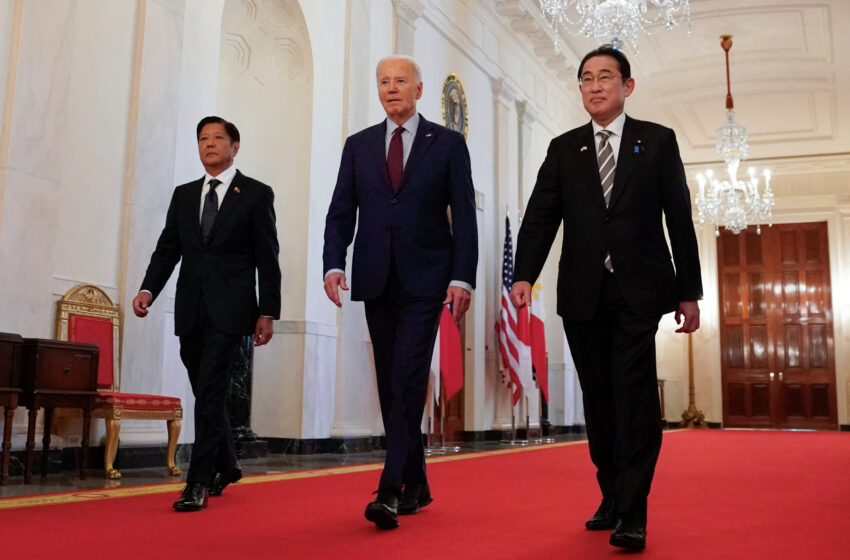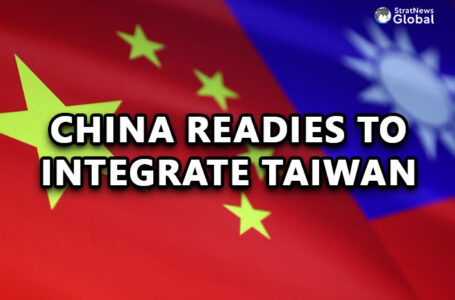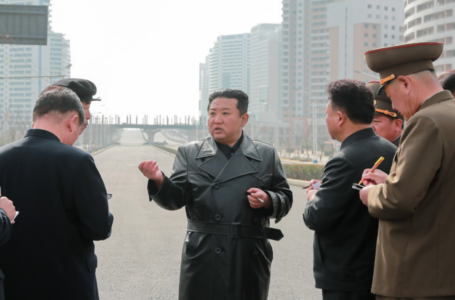Blinken Urges Netanyahu To Step Up Humanitarian Aid For Gaza
Marcos: US, Japan, Philippines Trilateral Deal to Shift South China Sea Dynamics

U.S. President Joe Biden escorts Philippines President Ferdinand Marcos Jr. and Japan Prime Minister Fumio Kishida to their trilateral summit at the White House in Washington, U.S., April 11, 2024. REUTERS/Kevin Lamarque
Philippine President Ferdinand Marcos Jr. stated on Friday that a cooperation pact between the Philippines, the United States, and Japan will alter the dynamics in the South China Sea and the surrounding area. He also aimed to reassure China that it was not the intended target of this agreement.
“I think the trilateral agreement is extremely important,” Marcos told a press conference in Washington a day after meeting President Joe Biden and Japanese Prime Minister Fumio Kishida in the nations’ first trilateral summit.
“It is going to change the dynamic, the dynamic that we see in the region, in ASEAN in Asia, around the South China Sea,” Marcos said, referring to the Association of Southeast Asian Nations.
The leaders of the three countries voiced “serious concerns” regarding China’s “dangerous and aggressive behaviour” in the South China Sea, a key maritime route handling over $3 trillion in annual shipborne trade, where China and several other nations have ongoing territorial disputes.
Still, Marcos said the summit was “not against any country” but had focused on deepening economic and security relations among Manila, Washington and Tokyo.
China asserts sovereignty over nearly all of the South China Sea, although the Permanent Court of Arbitration ruled in 2016 that Beijing’s extensive claims were legally unfounded.
In the past month, there have been multiple confrontations between Philippine and Chinese ships, involving the use of water cannons and tense verbal exchanges.
Beijing summoned the Philippine ambassador and a Japanese embassy official on Thursday to express opposition to what its foreign ministry termed “negative comments” about China.
The escalating dispute between China and the Philippines is occurring alongside enhanced security collaborations with the United States under President Marcos, which includes allowing greater U.S. access to Philippine military bases. Simultaneously, relations with Japan are also strengthening, as Manila is anticipated to sign a reciprocal troop agreement with Tokyo.
Biden has asked Congress for an additional $128 million for infrastructure projects at the Philippine bases.
Marcos also expressed confidence that around $100 billion in possible investment deals over the next five to 10 years from the summit will come into fruition.
While in Washington, Marcos also met with Defense Secretary Lloyd Austin, who assured him of continued U.S. support.
“This whole cooperation is critical to our collective security and continued prosperity across the region,” Austin said, reiterating Biden’s strong defence commitment.
With Inputs from Reuters





















